Live the present moment
Live the present moment
Live the present moment
Pray
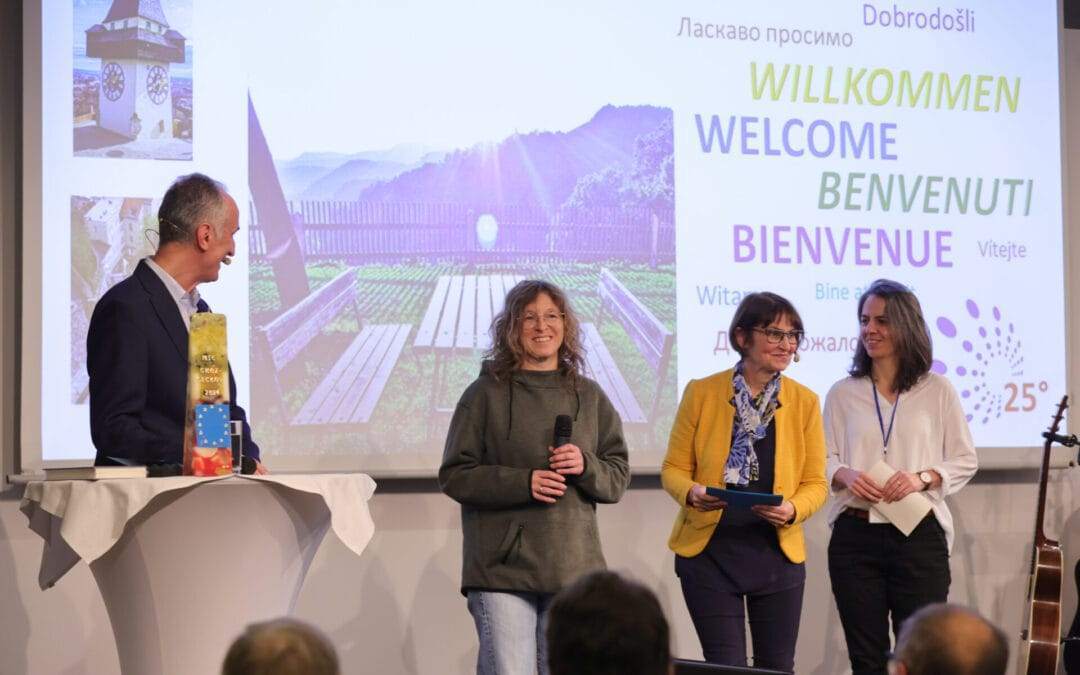
“To give a soul to Europe” is the aim of Together for Europe, a Christian network made up of over 300 Movements, Organizations and Communities from Western and Eastern Europe. It shines out as a sign of hope, especially in times of conflict and crisis.
On 31st October, Together for Europe (TfE) celebrated its 25th anniversary. This date also marked the historic 1999 Catholic-Lutheran Joint Declaration on the Doctrine of Justification in Augsburg, Germany, which healed a division of over 500 years between the two churches. In the years that followed, dialogue between them, based on mutual forgiveness, deepened, culminating in the historic Pact of Reciprocal Love in December 2001 at the Lutheran Church in Munich, attended by over 600 people.
The early promoters of TfE include Chiara Lubich, founder of the Focolare Movement, Andrea Riccardi, founder of the Community of Sant’Egidio and other founders of Italian Catholic and German Evangelical-Lutheran Movements and Communities, united by a commitment to journey together.
This year, from 31st October- 2nd November, more than 200 TfE representatives gathered in Graz-Seckau for the annual event, entitled “Called to Hope.” Participants represented 52 Movements, Communities and Organisations from 19 European countries and included Orthodox, Catholic, Protestant, Reformed and Free Church Christians, along with spiritual leaders, laypeople, civil authorities and political figures.
Among them were Bishop Wilhelm Krautwaschl of the host diocese, Bishop József Pál of the Diocese of Timișoara (Romania), Jesús Morán, Co-President of the Focolare Movement, Reinhardt Schink of the Evangelical Alliance in Germany, Markus Marosch of the Round Table (Austria), Márk Aurél Erszegi from the Hungarian Ministry of Foreign Affairs and former Prime Ministers Alojz Peterle of Slovenia and Eduard Heger of Slovakia. A delegation from the Interparliamentary Assembly on Orthodoxy, including Secretary-General Maximos Charakopoulos (Greece) and Advisor Kostantinos Mygdalis, also participated.
In his opening speech, Gerhard Pross (Esslingen YMCA), moderator of TfE and a witness of its beginnings, highlighted the many moments of grace experienced over the past 25 years. Bishop Christian Krause, who in 1999 was President of the Lutheran World Federation and co-signed the Joint Declaration, sent a message emphasizing the significance of this shared journey.
One participant shared, “Given the current situation in Europe, I arrived here discouraged and depressed. But these days have filled me with courage and hope.” A Ukrainian lady echoed this sentiment: “To be ambassadors of reconciliation, that is what I take away from this gathering. I live in a country at war, where reconciliation is not yet up for discussion. But I feel we can be ambassadors, because ambassadors are by definition diplomats who offer and prepare rather than imposing. This is the mission I feel called to bring where I live. I will try to do so, striving to be, as Jesús Morán said, ‘an artisan of a new culture.’”
In his address, Jesús Morán emphasized, “Change does not happen overnight. What we need are artisans and farmers of a new culture who work, sow and hope with patience. The ‘togetherness’ we speak of is not a simple union. Unlike union, unity regards participants as individuals. Its goal is community… Unity transforms those involved, because it reaches their essence without undermining their individuality. Unity is more than shared commitment; it is being united as one in commitment. While diversity in union can lead to conflict, in unity it becomes a source of richness. Ultimately, unity transcends participants and is received as a gift.”
During the gathering, participants solemnly renewed the Pact of Reciprocal Love, the foundation of their shared commitment, praying in four languages: “Jesus, we want to love one another as You have loved us.”
The event concluded with the idea of hosting a major event in 2027 to send a powerful message of unity and hope to Europe.
As a participant from the Netherlands reflected: “I am sure that work, life, love and suffering will bring good to Europe. It is very important to be ambassadors of reconciliation… Artisans are essential, to plant seeds of hope.”
Lorenzo Russo
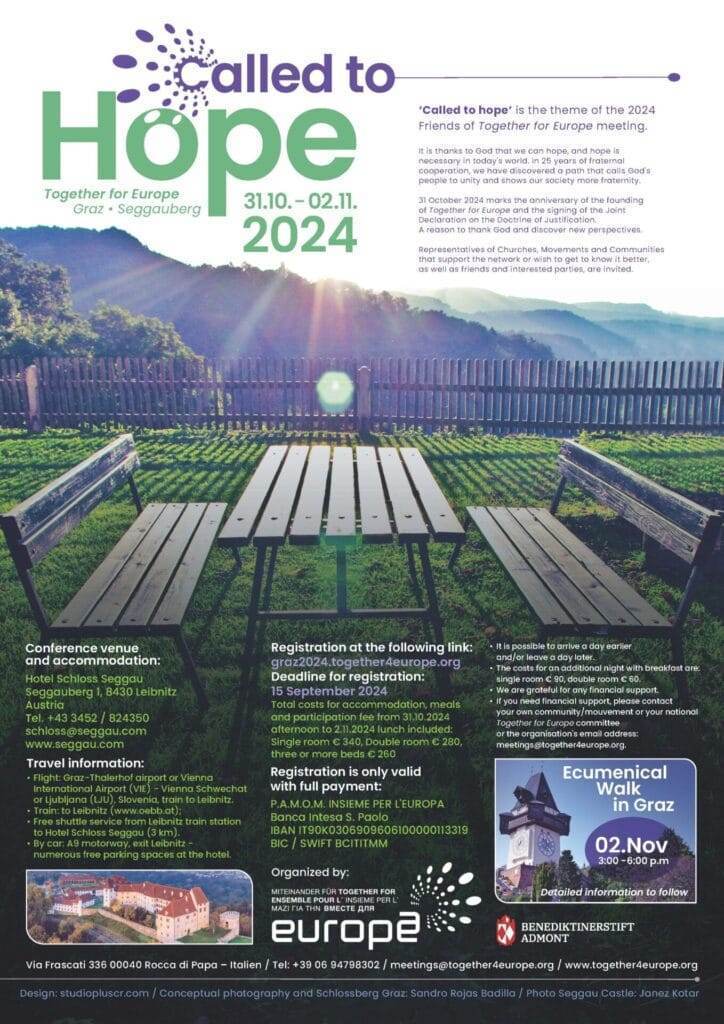
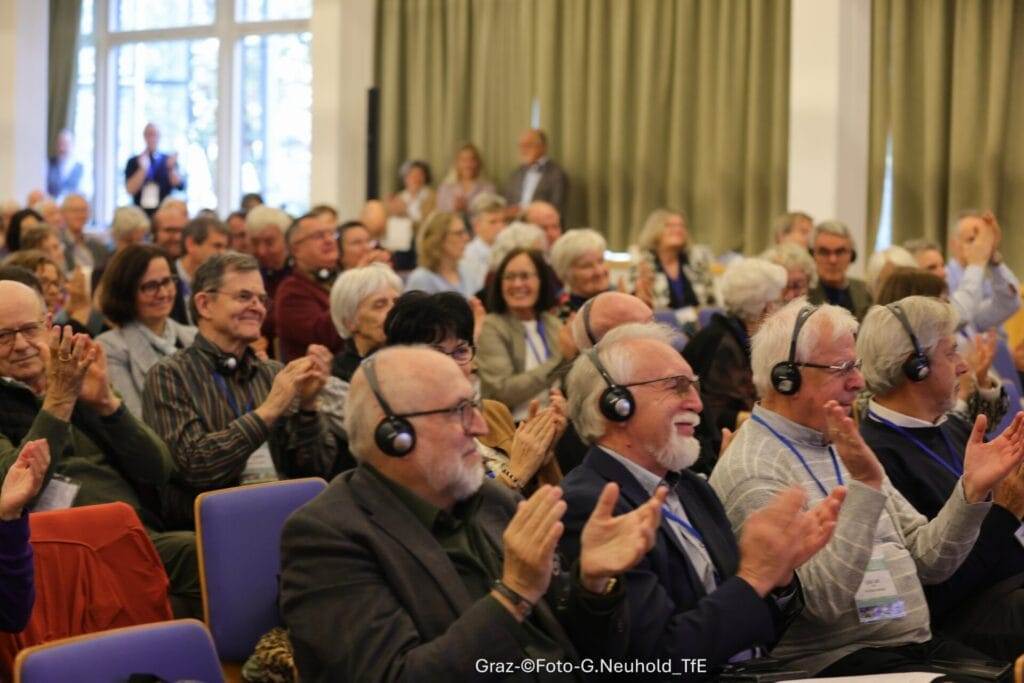
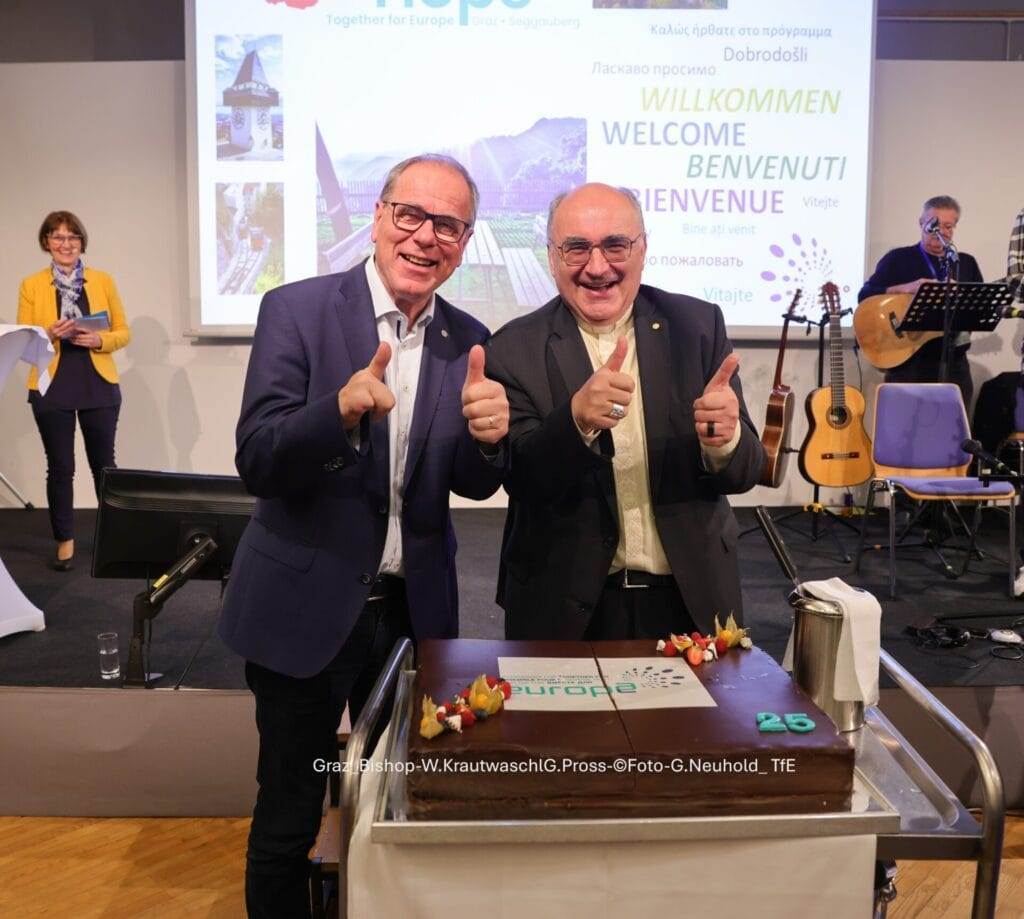
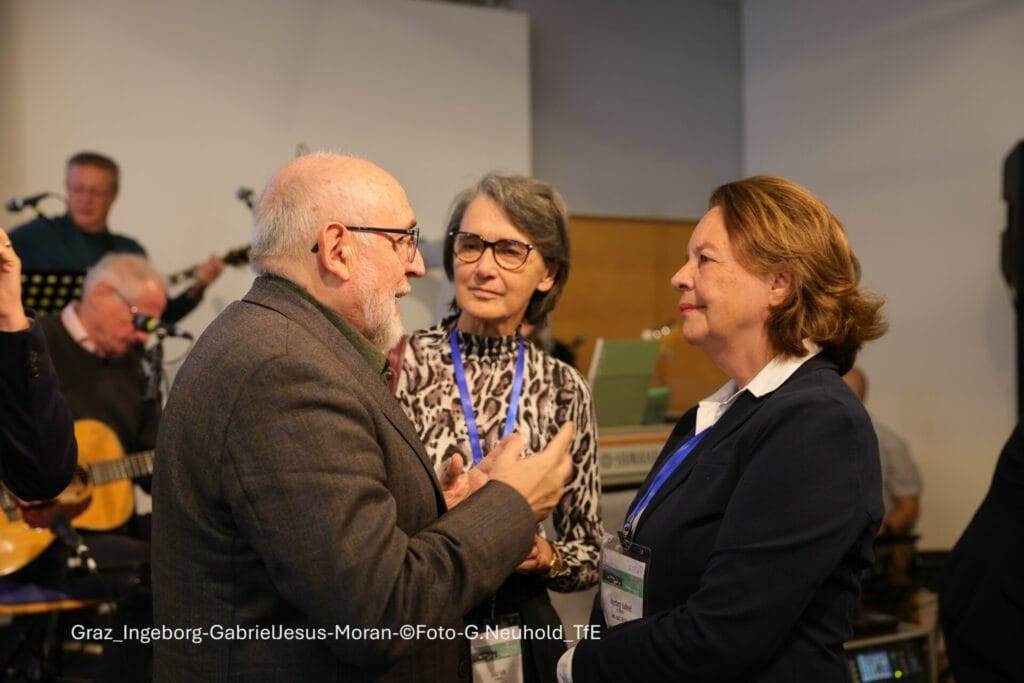
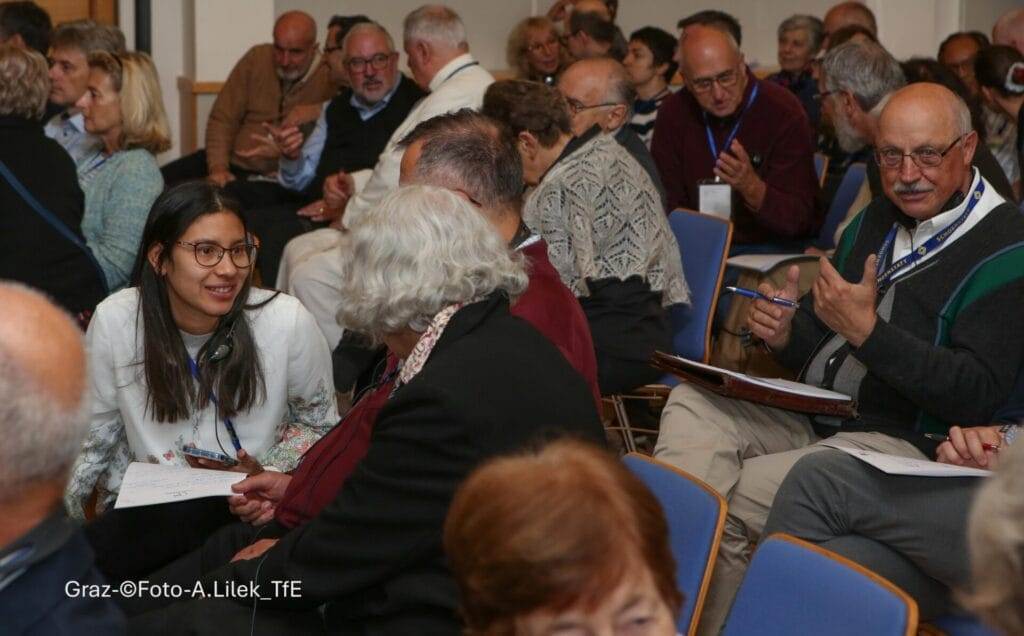
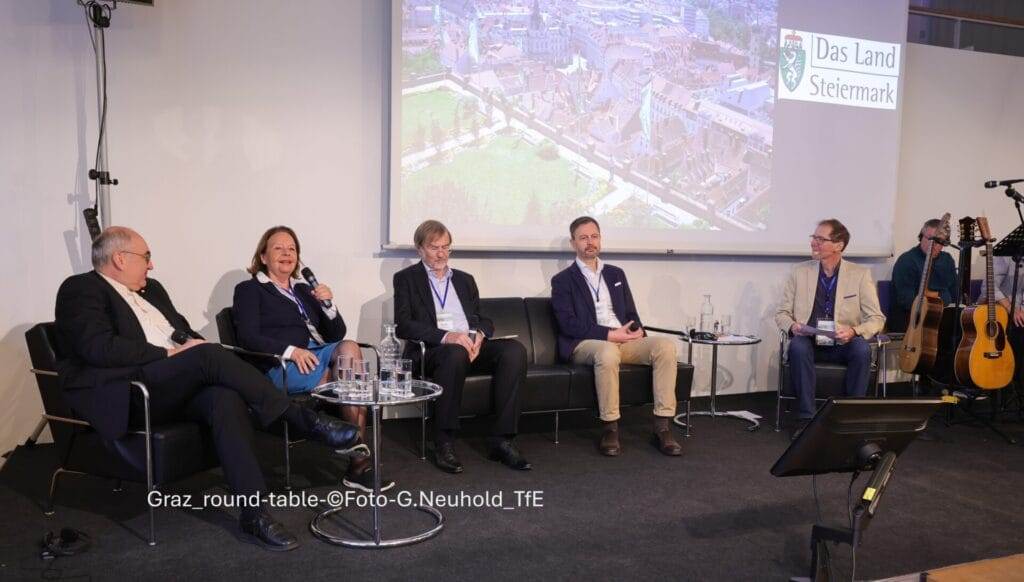
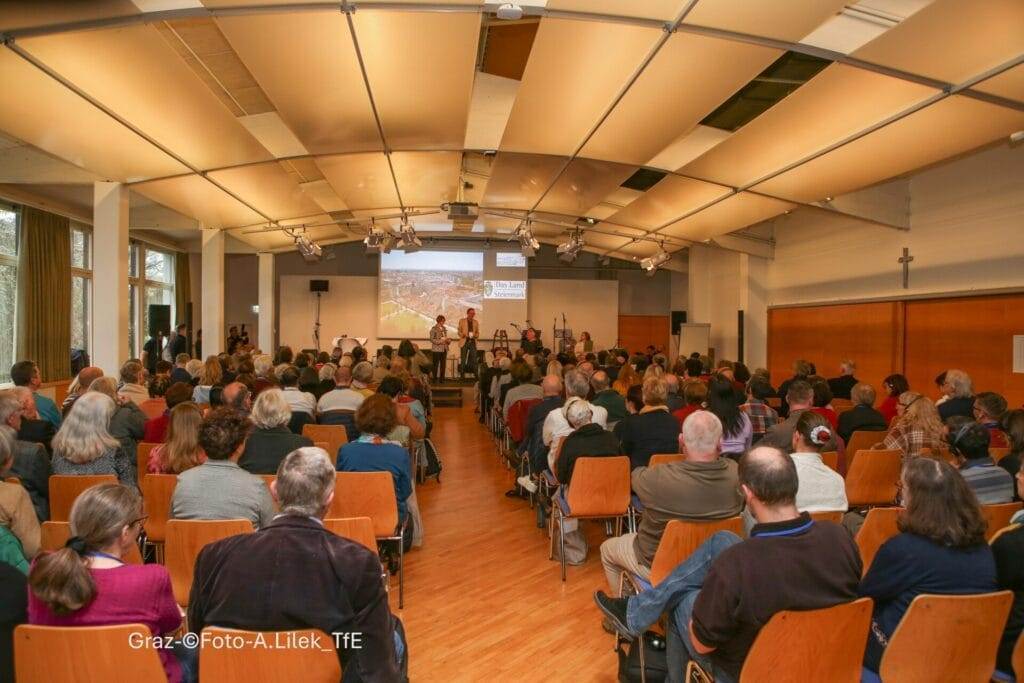
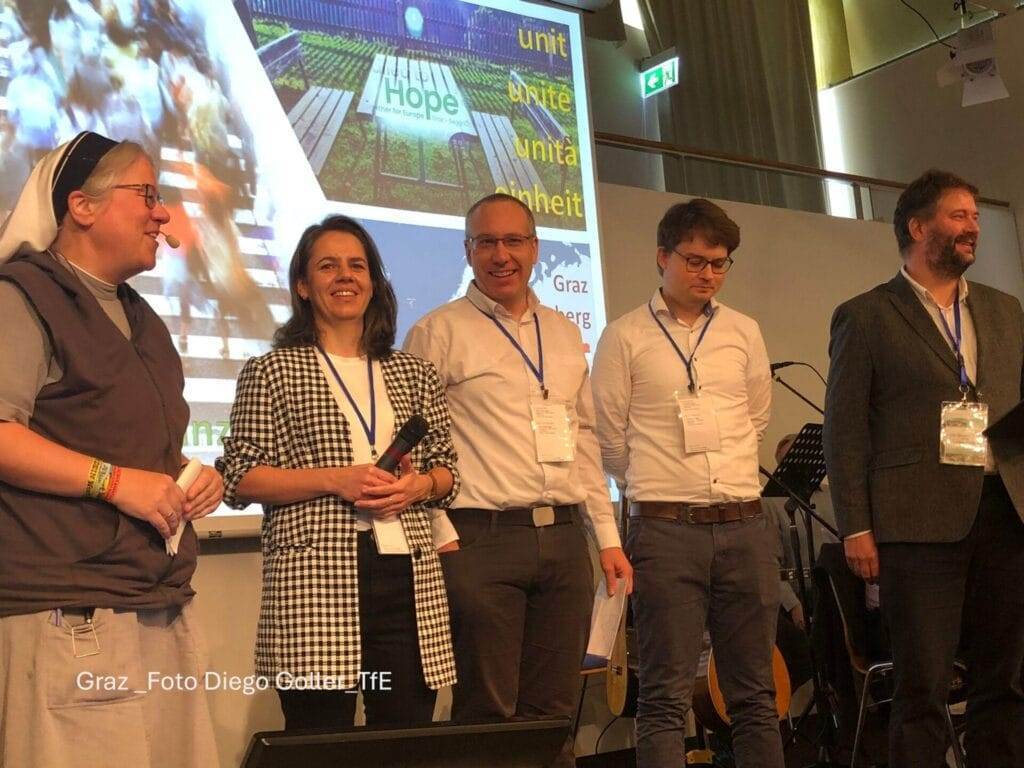
Bring joy!
Praise God in creation
Be generous
What can I do for you?
Be vigilant in love
Act in favour of others
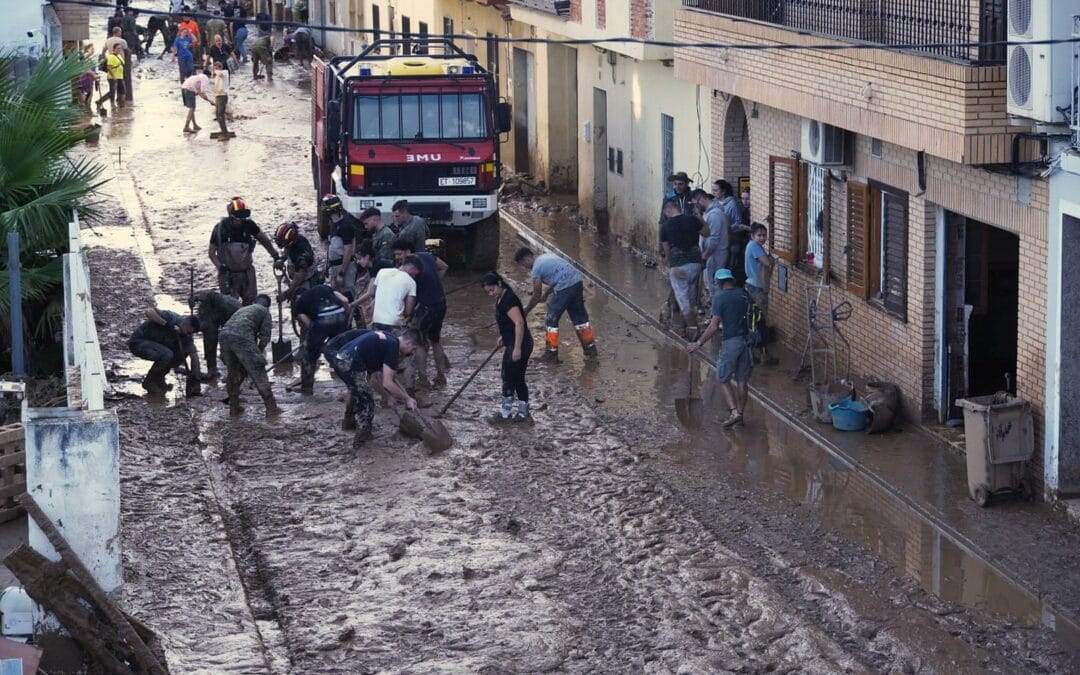
A few days ago, the Spanish province of Valencia experienced one of the greatest natural disasters in its history. Heavy rains, “DANA”, caused massive floods that swept through cities and towns in the region.
Currently, the toll is 214 dead and 32 people missing. An estimated 800,000 people, one-third of Valencia’s population, have been affected. Around 2,000 small businesses have been swamped with water and mud, losing everything. Cars floated through the streets, piling up like paper boats. The list of families who have lost their livelihoods has yet to be compiled. It is a major disaster made worse by the indefinite postponement of public works needed to prevent floods like these from occurring.
However, alongside this great disaster remarkable solidarity is being demonstrated. In the following days, as the waters receded, revealing a thick layer of mud covering everything, thousands of volunteers, mostly young people, began arriving in the affected area, armed with shovels and brushes, ready to help.
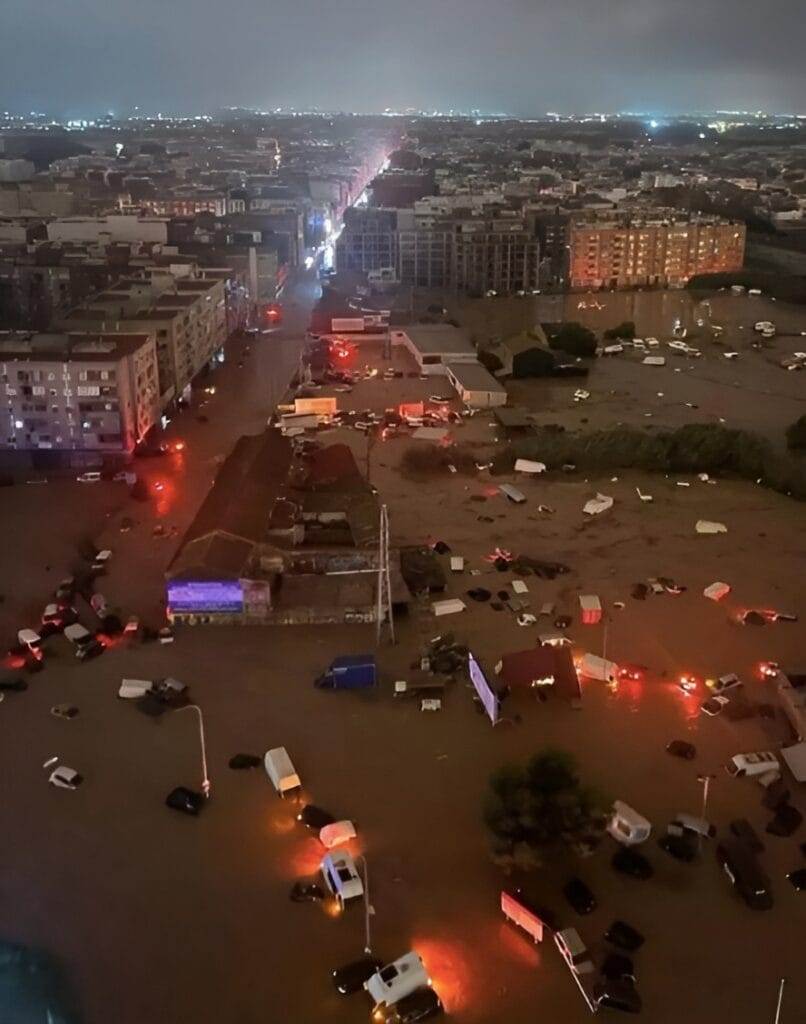
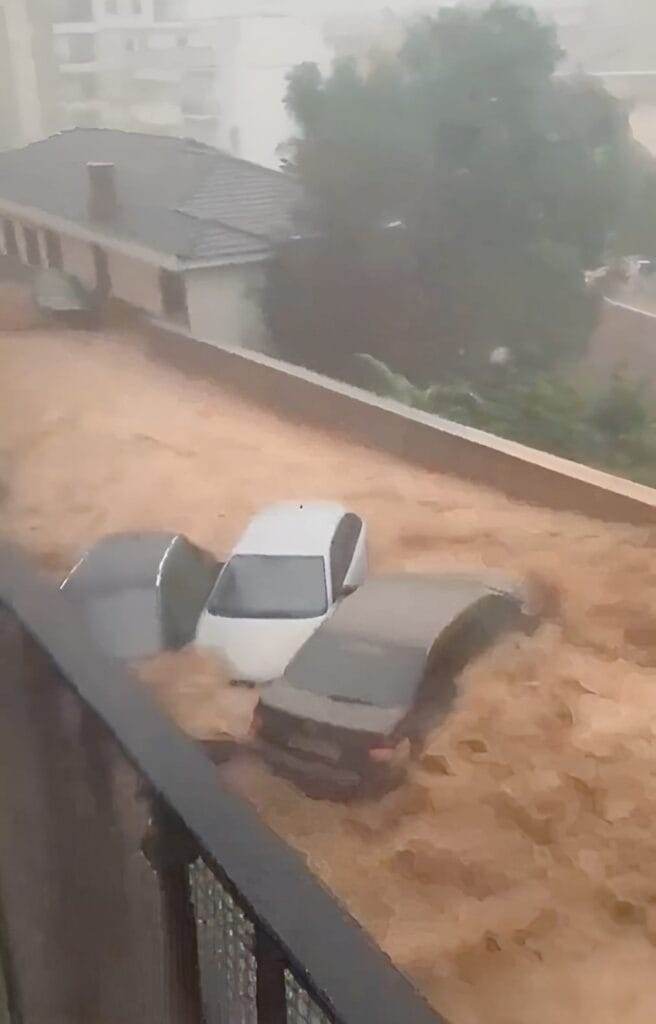
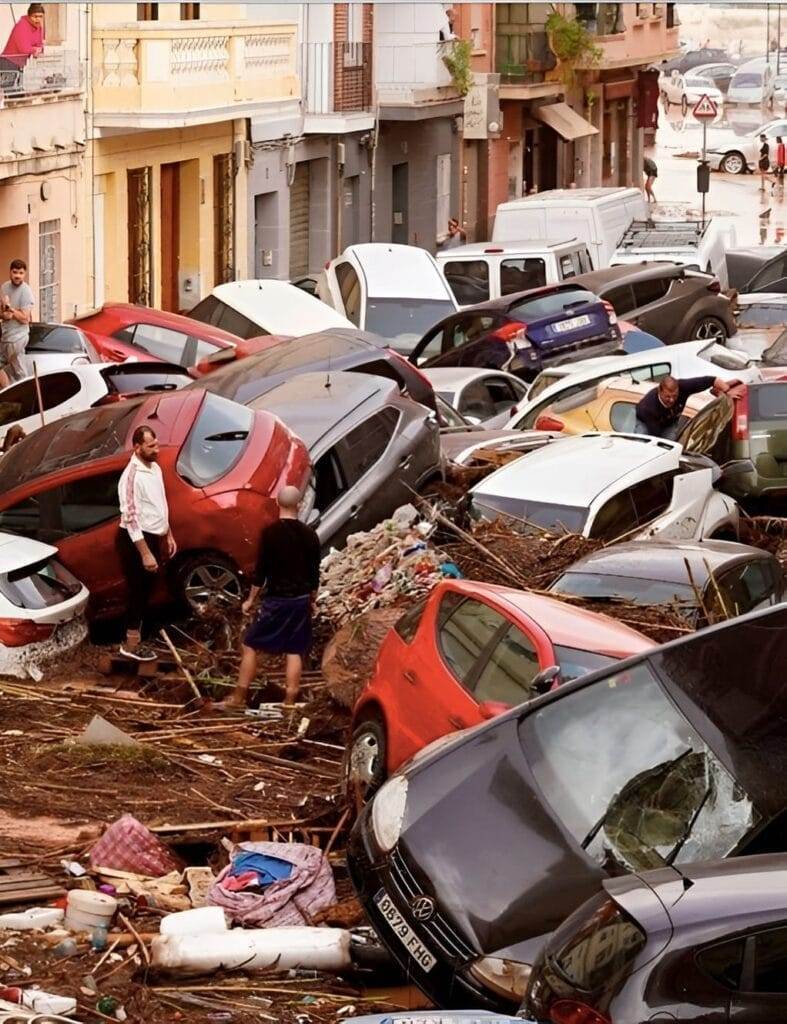
José Luis Guinot is a medical oncologist and president of the Viktor E. Frankl Association of Valencia, which provides emotional support for people affected by illness, suffering, death and other vital losses. The City Council asked him to help at a health and support centre set up for the occasion, where he could “listen and welcome those who need to share what they have experienced.” He said, “This has been and continues to be, an immense tragedy, far beyond anything we could have imagined. We couldn’t believe it was happening.”
He said that a few days later, while attending Sunday Mass, it saddened him to hear only prayers for the dead and those affected by the flood, without mention of any further support. He thought, “It’s not enough just to pray, even though we must pray a lot. We need to be close to people to give them hope. As Christians and as part of the Focolare Movement, we must offer that hope even in harsh experiences. Together and united, we can help each other overcome this situation.”
In one of the affected areas, a Focolare family with young children had their home flooded. Although they were unharmed, everything they owned was lost: washing machine, refrigerator, domestic appliances, furniture… Help from other families came quickly, someone washed their clothes, then another person gave them a new washing machine.
Eugenio, a member of the Focolare Movement who has a disability due to polio, was the President of the Federation of Adapted Sports in Valencia for many years. He couldn’t get around after the flood because of his mobility difficulty but by making phone calls he was able to contact local disabled associations asking for help. José Luis Guinot said, “We must offer ideas, help create solidarity and generate donations.” For example, these associations managed to obtain wheelchairs for those who had lost theirs in the flood.
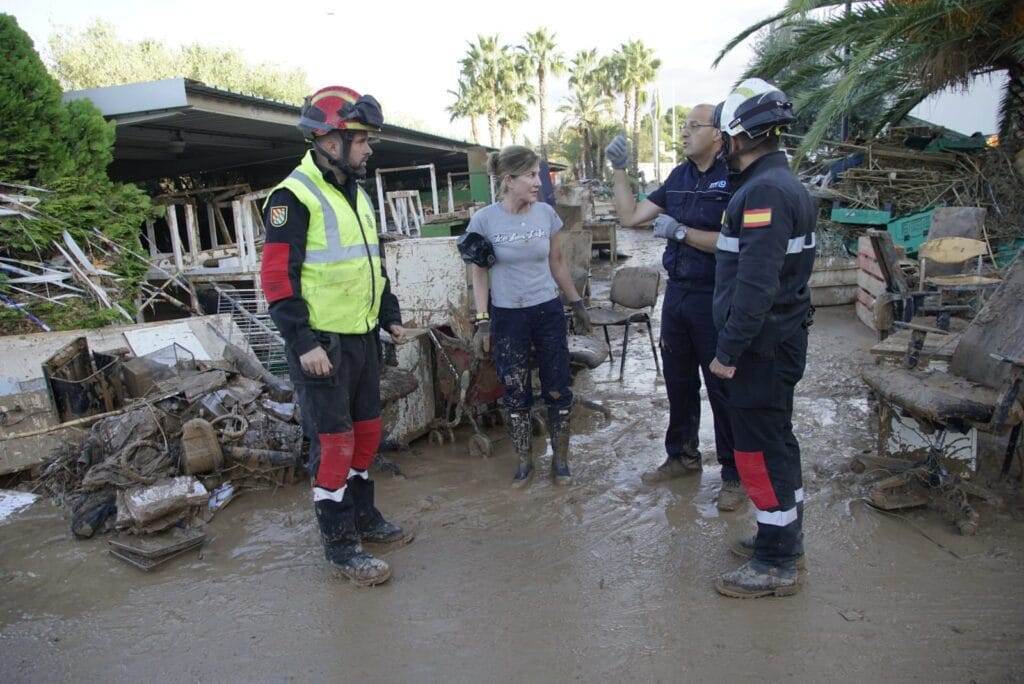
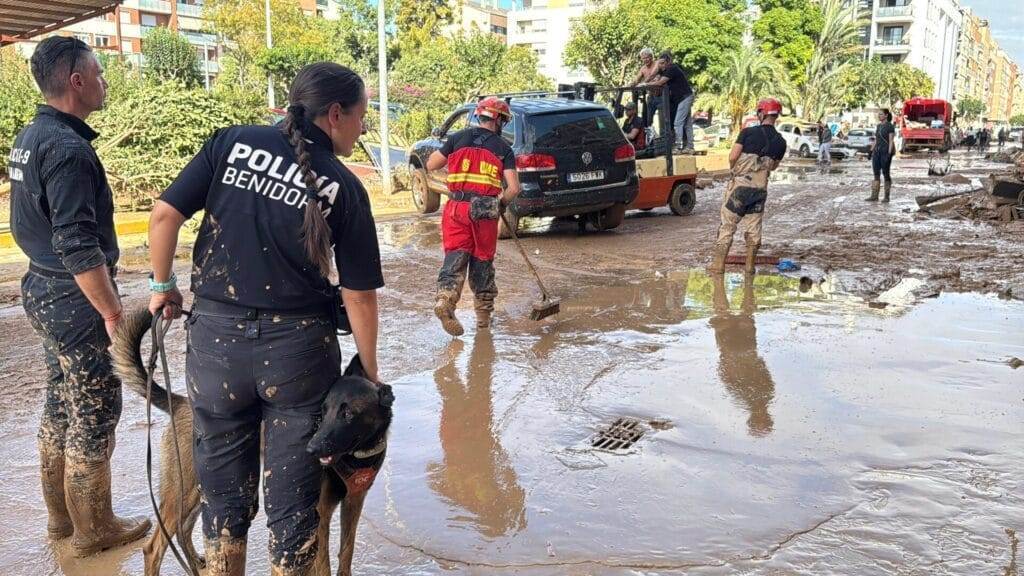
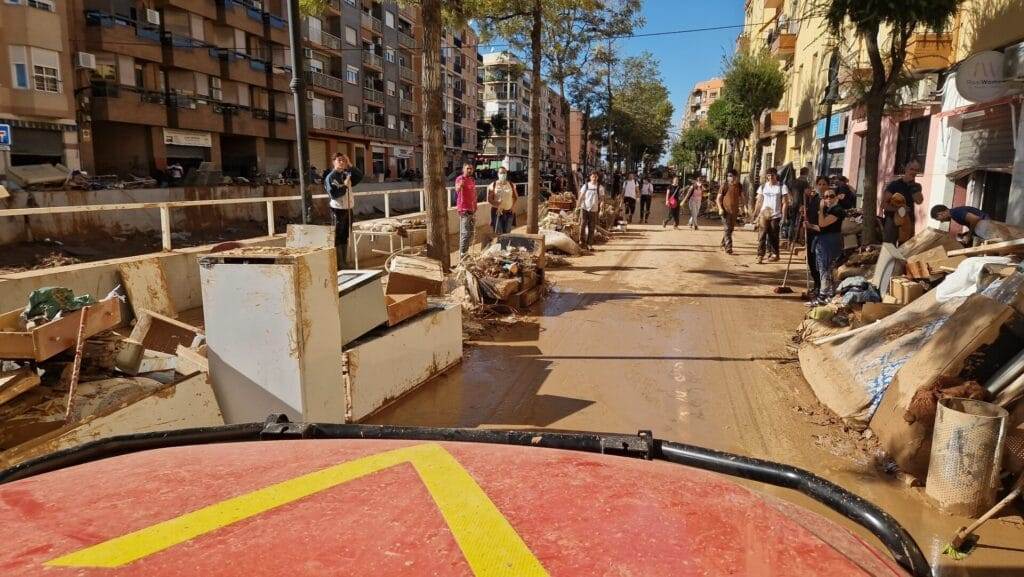
“I think this is a wake-up call for all of society. Spain is going through a period of politically polarized conflict,” José Luis reflected. “But there’s another side of society, many young people who we think are always glued to social media, yet they’re out here in the mud, seeking a society of solidarity, a united world, a society where fraternity is real. Until now, politicians hadn’t taken this message seriously. But now, no one can deny it.”
Next weekend, the Focolare community will meet to think and plan together how they can continue serving after these emergency days. As José Luis said, everyone can and must be involved, because, “two or three months from now, there will be a need for emotional support, for a sense of belonging to something, to a community or a parish… It will be a challenge for us: we’ll need to be on the phone a lot, visit people, listen to them, encourage them despite their hardships, but letting them know that we are with them. Even if you can’t leave your home, if you’re elderly or have small children… you can talk to your neighbours, make phone calls or offer words of encouragement. We must transmit a sense of community… I won’t try to explain anything to those who have lost loved ones or their livelihood, I will give them a hug and say: ‘We will help you find the strength to move forward'”. .
The Focolare community and the Fundación Igino Giordani, has launched a fundraising campaign. The funds collected will be managed locally to support the victims. The material damage and losses are immense. Many survivors have lost beds, tables, refrigerators, washing machines, cars, work equipment…
Contributions can be made through: Fundación Igino Giordani
CaixaBank: ES65 2100 5615 7902 0005 6937
Account Holder: Fundación Igino Giordani
Purpose: Emergencia DANA España
To claim a tax deduction, send your tax information to info@fundaciongiordani.org
Carlos Mana
Photo: © UME/via fotos Publicas